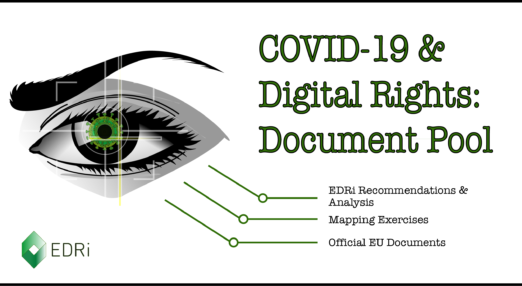Privacy and data protection
Privacy and data protection are essential for us to live, connect, work, create, organise and more. Governments and companies have long used mass surveillance for control trying to legitimise snooping for health, security or other reasons. The near-total digitisation of our lives has made it easier to control, profile and profit from our attention, data, bodies and behaviours in ways that are very difficult for us to understand and challenge. European data protection standards such as the GDPR are a good step forward but we need more to effectively ensure enforcement and protection against unlawful surveillance practices.
Filter resources
-

Xnet issues two complaints to improve data protection in Spain
Xnet highlights gaps in Spain’s adaptation of the EU General Data Protection Regulation (GDPR). The Spanish member of EDRi has opened two complaints to the European Commission related to the lack of effective adaptation of the data minimisation principle and the lack of conciliation between personal data protection and freedom of expression and information in the Spanish legislation.
Read more
-

Google: seizing a crisis to legitimise mass surveillance?
Even in times of Corona, Google follows you wherever you go. The company collects and processes all our location data en masse and can thus graph how well we adhere to the imposed measures.
Read more
-

Austria’s biggest privacy scandal: residential addresses made public
Nobody took data protection into account for the so-called “Supplementary Register for Other Concerned Parties” (Ergänzungsregister für sonstige Betroffene). The Ministry for the Economy and the Finance Ministry are responsible for a data breach to which the Austrian Economic Chambers were an accomplice.
Read more
-

COVID-19 & Digital Rights: Document Pool
Find in this EDRi doc pool all relevant articles and documents around the COVID-19 crisis and digital rights.
Read more
-

Why COVID-19 is a Crisis for Digital Rights
The COVID-19 pandemic has triggered an equally urgent digital rights crisis. New measures being hurried in to curb the spread of the virus, from “biosurveillance” and online tracking to censorship, are potentially as world-changing as the disease itself.
Read more
-

COVID-19: A Commission hitchhiker’s tech guide to the App Store
How's does the European Commission's toolbox and data protection guidelines fit with the EDRi network's take?
Read more
-

Technology, migration, and illness in the times of COVID-19
In our ongoing work on technology and migration, we examine the impacts of the current COVID-19 pandemic on the rights of people on the move and the increasingly worrying use of surveillance technology and AI at the border and beyond.
Read more
-

COVID-19 pandemic adversely affects digital rights in the Balkans
Cases of arbitrary arrests, surveillance, phone tapping, privacy breaches and other digital rights violations have drastically increased in Central and Southeast Europe as governments started imposing emergency legislation to combat the COVID-19 outbreak.
Read more
-

COVID-Tech: Emergency responses to COVID-19 must not extend beyond the crisis
In EDRi's new series on COVID-19, we will explore the critical principles for protecting fundamental rights while curtailing the spread of the virus, as outlined in the EDRi network's statement on the virus. Each post in this series will tackle a specific issue at the intersection of digital rights and the global pandemic in order to explore broader questions about how to protect fundamental rights in a time of crisis.
Read more
-

#PrivacyCamp20: Event Summary
The 8th edition of Privacy Camp revolved in 2020 around the topic of Technology and Activism, the schedule being composed of ten sessions in different formats. What were these about? Read below a summary of each discussion, with references to full session recordings.
Read more
-

Press Release: EDRi calls for fundamental rights-based responses to COVID-19
Read more
-

Facial recognition: Homo Digitalis calls on Greek DPA to speak up
In the spring of 2019, the Hellenic Police signed a €4 million contract with Intracom Telecom, a global telecommunication systems and solutions vendor, for a smart policing project. Seventy five percent of the project is funded by the Internal Security Fund (ISF) 2014-2020 of the European Commission.
Read more
